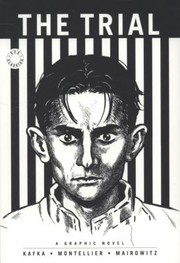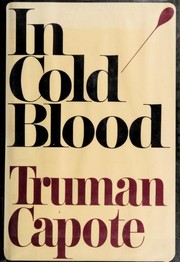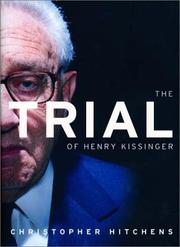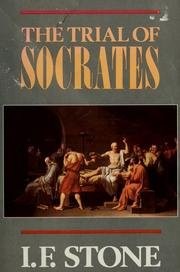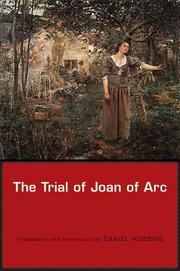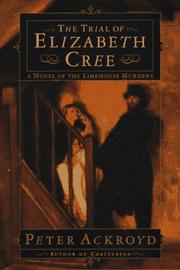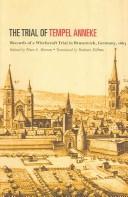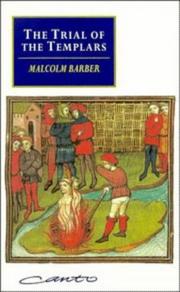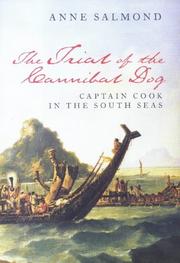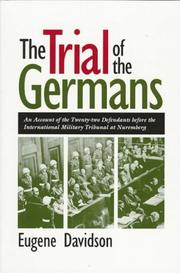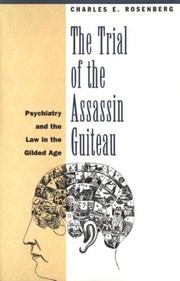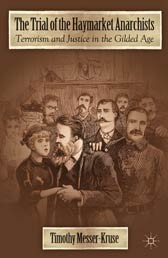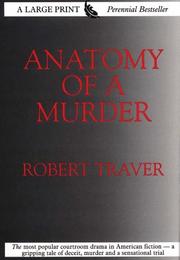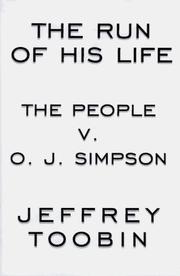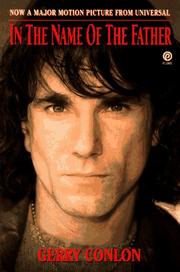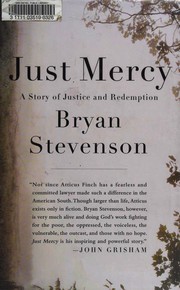Are you fascinated by the drama and tension of legal battles? Whether you’re a law enthusiast or simply love a gripping courtroom story, the world of trials has inspired some truly remarkable literature. From classic courtroom dramas to thought-provoking non-fiction, the best books about trials offer a captivating glimpse into the complexities of the legal system and the human condition. In this article, we’ll explore the 20 best books on trials that every legal drama aficionado should have on their reading list. Get ready to immerse yourself in the thrilling and often unpredictable world of trials with these compelling reads.
Contents
- 1 20 Best Trials Books
- 2 The Trial
- 3 To Kill a Mockingbird
- 4 The Crucible
- 5 In Cold Blood
- 6 The Stranger
- 7 The Trial of Henry Kissinger
- 8 The Trial of Socrates
- 9 The Trial of Joan of Arc
- 10 The Trial of Elizabeth Cree
- 11 The Trial of Tempel Anneke
- 12 The Trial of the Templars
- 13 The Trial of the Cannibal Dog
- 14 The Trial of the Germans
- 15 The Trial of the Assassin Guiteau
- 16 The Trial of the Haymarket Anarchists
- 17 Anatomy of a Murder
- 18 A Time to Kill
- 19 The Run of His Life: The People v. O.J. Simpson
- 20 In the Name of the Father
- 21 Just Mercy
- 22 Final Thoughts on Best Trials Books
- 23
20 Best Trials Books
The Trial
by Franz Kafka
The Trial, a compelling novel by Franz Kafka, delves into the labyrinth of bureaucracy and the complexities of the legal system. The story follows the protagonist, Josef K., who finds himself inexplicably arrested and put on trial for a crime that remains a mystery to him. As he navigates through a series of absurd and surreal encounters with the judicial system, Josef K. becomes increasingly entangled in a web of confusion, paranoia, and existential dread.
Kafka’s masterful prose and vivid imagery create a haunting and thought-provoking exploration of power, control, and the individual’s struggle against a faceless and inscrutable authority. The Trial is a gripping and unsettling portrayal of the human experience, as well as a powerful critique of the dehumanizing effects of bureaucracy and the often arbitrary nature of justice. This timeless classic continues to captivate readers with its profound insights into the human condition and the intricacies of the legal process.
To Kill a Mockingbird
by Harper Lee
To Kill a Mockingbird, a timeless classic by Harper Lee, is a compelling book about trials that delves into issues of racial injustice in the American South. Set in the 1930s, the story follows young Scout Finch as she navigates the complexities of her hometown, Maycomb, Alabama. Her father, Atticus Finch, a principled lawyer, defends a black man, Tom Robinson, who is falsely accused of assaulting a white woman. The book on trials masterfully explores themes of morality, empathy, and the inherent flaws of the justice system. Through Scout’s innocent perspective, readers are confronted with the harsh realities of racism and prejudice, as well as the courage it takes to stand up for what is right, even in the face of overwhelming opposition. With its rich characters and thought-provoking narrative, To Kill a Mockingbird continues to captivate readers of all ages and remains a poignant reminder of the enduring power of empathy and compassion.
The Crucible
by Arthur Miller
The Crucible by Arthur Miller is a gripping play set in the 17th-century Salem, Massachusetts during the notorious Salem witch trials. This powerful drama delves into the hysteria and paranoia that engulfed the Puritan community, leading to the wrongful accusations and executions of numerous innocent people. The story follows John Proctor, a farmer who becomes embroiled in the witch trials when his wife, Elizabeth, is accused of witchcraft. As the town is consumed by fear and suspicion, the play explores themes of mass hysteria, justice, and the consequences of blind faith and revenge. Miller uses the Salem witch trials as a metaphor for the anti-Communist “witch hunts” of the 1950s, making the play a powerful commentary on the dangers of political and social paranoia. The Crucible is a timeless classic that continues to resonate with audiences, serving as a cautionary tale about the devastating impact of baseless accusations and mass hysteria.
In Cold Blood
by Truman Capote
In Cold Blood by Truman Capote is a gripping non-fiction novel that reads like a psychological thriller. This groundbreaking book on trials tells the true story of the brutal 1959 murders of the Clutter family in Holcomb, Kansas, and the investigation, trial, and execution of their killers. Capote’s immersive narrative style and meticulous research bring the chilling events to life, delving into the minds of the murderers and the impact of the crime on the small town community. The book about trials blurs the lines between true crime and literature, providing a deep exploration of the human psyche and the criminal justice system.
The Stranger
by Albert Camus
The Stranger by Albert Camus is a thought-provoking novel that delves into the existential dilemma of the human condition. Set in 1940s Algeria, the story follows the life of Meursault, a detached and apathetic young man who becomes embroiled in a murder trial. Through Meursault’s introspective narrative, Camus explores the themes of alienation, absurdity, and the search for meaning in a seemingly indifferent world.
As the trials unfold, Meursault’s indifference towards societal norms and his lack of remorse for his actions challenge the reader to question the nature of morality and justice. The novel confronts the reader with the fundamental question of individual freedom and the consequences of living authentically in a world that demands conformity.
Camus’ masterful prose and philosophical insights make The Stranger a captivating and thought-provoking read. This book about trials is a timeless exploration of the human experience that continues to resonate with readers today.
The Trial of Henry Kissinger
by Christopher Hitchens
The Trial of Henry Kissinger by Christopher Hitchens is a gripping and controversial book about the alleged war crimes of the former US Secretary of State. Hitchens presents a compelling case for holding Kissinger accountable for his role in various international conflicts, including the Vietnam War and the secret bombing of Cambodia. The book delves into the moral and legal implications of Kissinger’s actions, raising important questions about the accountability of political leaders and the pursuit of justice on the global stage. Hitchens skillfully weaves together historical evidence, legal analysis, and moral arguments to make a persuasive case for why Kissinger should be brought to trial. The Trial of Henry Kissinger is a thought-provoking and thought-provoking exploration of the complexities of international law, diplomacy, and the ethical responsibilities of those in power. This trials book challenges readers to reconsider the actions of political figures and the possibility of holding them accountable for their decisions.
The Trial of Socrates
by I.F. Stone
The Trial of Socrates by I.F. Stone is a compelling book about the trial of the ancient Greek philosopher, Socrates. Stone meticulously examines the events leading up to Socrates’ trial, the trial itself, and its aftermath, providing a thorough and thought-provoking analysis of one of history’s most famous trials. Through detailed research and insightful commentary, Stone sheds light on the political and social climate of ancient Athens, the reasons behind Socrates’ prosecution, and the impact of his trial on Western philosophy and democracy.
This trials book is not only a fascinating exploration of the life and death of Socrates, but also a reflection on the nature of justice, the freedom of speech, and the relationship between the individual and the state. Stone’s engaging writing style and his passion for the subject make this book about trials a compelling read for anyone interested in history, philosophy, or the complexities of the legal system.
The Trial of Joan of Arc
by Daniel Hobbins
The Trial of Joan of Arc by Daniel Hobbins is a captivating exploration of the infamous trial that led to the execution of the legendary French heroine. Hobbins delves into the intricacies of the trial, shedding light on the political, religious, and social forces at play during this pivotal moment in history. This book on trials meticulously examines the transcript of Joan of Arc’s trial, offering insights into the legal strategies, religious debates, and personal motivations of the key players involved. Hobbins’ insightful analysis brings to life the drama and tension of the trial, allowing readers to immerse themselves in the complex web of accusations, testimonies, and judgments that ultimately sealed Joan of Arc’s fate. A compelling blend of historical scholarship and narrative storytelling, this trials book provides a thought-provoking and immersive look into one of the most significant trials in history.
The Trial of Elizabeth Cree
by Peter Ackroyd
The Trial of Elizabeth Cree by Peter Ackroyd is a riveting historical fiction novel that delves into the dark and mysterious world of Victorian London. The story follows the trial of Elizabeth Cree, a woman accused of murdering her husband, and the gripping courtroom drama that unfolds as her fate hangs in the balance. Set against the backdrop of the infamous Jack the Ripper murders, the novel weaves together murder, scandal, and intrigue, keeping readers on the edge of their seats until the very end.
Ackroyd’s masterful storytelling and meticulous attention to historical detail bring the streets of Victorian London to life, immersing readers in a world of sordid secrets and shadowy alleyways. The Trial of Elizabeth Cree is a compelling exploration of justice, morality, and the complexities of the human condition, making it a must-read for anyone who enjoys a gripping book about trials.
The Trial of Tempel Anneke
by Peter A. Morton
The Trial of Tempel Anneke by Peter A. Morton is a captivating historical account of one of the most infamous witch trials in history. This gripping book delves into the harrowing experience of Tempel Anneke, a woman accused of witchcraft in 17th-century Germany. Through meticulous research and vivid storytelling, Morton brings to life the fear, hysteria, and injustice that surrounded Anneke’s trial.
Readers will be transported back in time to a period of superstition and paranoia, where accusations of witchcraft could destroy lives. The Trial of Tempel Anneke is a compelling exploration of the legal system, the power of fear, and the human capacity for cruelty. Morton’s expert narrative skillfully unravels the complexities of the trial, offering a thought-provoking analysis of the social and political forces at play. This book on trials is a must-read for anyone interested in history, justice, and the enduring impact of witch trials on society.
The Trial of the Templars
by Malcolm Barber
The Trial of the Templars by Malcolm Barber is a captivating book about trials that delves into the dramatic and controversial legal proceedings against the Knights Templar in the 14th century. Barber, a renowned historian, provides a comprehensive account of the events leading up to the trial, the charges brought against the Templars, and the subsequent dissolution of the order by the Pope.
Through meticulous research and scholarly analysis, Barber offers a compelling narrative that explores the political, religious, and social dynamics that shaped the trial and its outcome. He also challenges many of the myths and misconceptions surrounding the Templars, shedding light on the complexities of their downfall.
With its rich detail and engaging storytelling, The Trial of the Templars is a must-read for history enthusiasts, legal scholars, and anyone fascinated by the intricacies of medieval justice. Barber’s expertise and thorough examination of this pivotal book on trials make it a valuable addition to the library of anyone interested in the intersection of law and history.
The Trial of the Cannibal Dog
by Anne Salmond
The Trial of the Cannibal Dog by Anne Salmond is a captivating non-fiction book about the fascinating trials of the indigenous Maori people in New Zealand during the 18th century. Salmond skillfully weaves together the story of the Europeans’ arrival in New Zealand and their interactions with the Maori, leading to a clash of cultures and ultimately, a series of trials that would shape the future of the country.
This trials book explores the complexities of colonialism, the clash of legal systems, and the impact of cultural misunderstandings, all told through the lens of the dramatic and poignant trials that took place. Salmond’s meticulous research and engaging storytelling make this book a must-read for anyone interested in history, law, and the human experience.
Through vivid descriptions and compelling narratives, The Trial of the Cannibal Dog offers a thought-provoking and immersive look into a pivotal period in New Zealand’s history, making it a truly captivating read for anyone intrigued by stories of justice, cultural clashes, and the complexities of trials.
The Trial of the Germans
by Eugene Davidson
The Trial of the Germans by Eugene Davidson is a riveting book about the legal proceedings that followed the atrocities of World War II. This powerful book on trials delves into the Nuremberg Trials, where the top leaders of Nazi Germany were brought to justice for their heinous crimes against humanity. Eugene Davidson meticulously examines the legal and moral complexities of the trials, providing a compelling account of the pursuit of justice in the face of unimaginable evil.
With a keen eye for detail and a deep understanding of the historical context, Davidson brings the trials to life, offering readers a comprehensive and thought-provoking exploration of this pivotal moment in history. The book about trials is a must-read for anyone interested in the legal, ethical, and historical implications of holding individuals accountable for war crimes and genocide. The Trial of the Germans is a gripping and insightful portrayal of one of the most significant trials in modern history.
The Trial of the Assassin Guiteau
by Charles E. Rosenberg
The Trial of the Assassin Guiteau by Charles E. Rosenberg is a gripping account of the legal proceedings surrounding the infamous assassination of President James A. Garfield. This meticulously researched book on trials delves into the trial of Charles Guiteau, the man responsible for the shocking murder, and provides a compelling analysis of the legal strategies, medical evidence, and public perceptions that shaped the case.
Rosenberg’s book about trials offers a fascinating exploration of the intersection of law, medicine, and politics in late 19th-century America. Readers will be captivated by the courtroom drama, the strategies employed by both the prosecution and the defense, and the broader social and cultural context in which the trial unfolded. With its vivid storytelling and insightful commentary, this trials book is a must-read for anyone interested in legal history, true crime, or the complexities of the American justice system.
The Trial of the Haymarket Anarchists
by Timothy Messer-Kruse
The Trial of the Haymarket Anarchists by Timothy Messer-Kruse is a compelling book about trials that delves into the controversial trial of eight anarchists accused of inciting a riot at Chicago’s Haymarket Square in 1886. Messer-Kruse, a historian, meticulously re-examines the trial transcripts and uncovers startling evidence that challenges the traditional narrative of the events.
Through his thorough analysis, Messer-Kruse sheds light on the biases and political motivations of the trial, offering a thought-provoking exploration of the justice system and the impact of sensationalism on trials. The book presents a gripping account of the courtroom drama and the social and political climate of the time, making it a captivating read for history buffs and those interested in the intersection of law and politics.
With meticulous research and engaging storytelling, The Trial of the Haymarket Anarchists is a must-read for anyone intrigued by trials and legal history, offering a fresh perspective on a pivotal moment in American jurisprudence.
Anatomy of a Murder
by Robert Traver
Anatomy of a Murder, written by Robert Traver, is a gripping book on trials that takes readers deep into the world of the courtroom. Set in the small town of Iron Mountain, Michigan, the novel follows the trial of Lieutenant Frederick Manion, who is accused of murdering a local bar owner. As the trial unfolds, the reader is drawn into the complex web of evidence, witness testimonies, and legal strategies that shape the outcome of the case.
Traver, a former Michigan Supreme Court justice, brings his firsthand knowledge of the legal system to the narrative, creating a compelling and authentic portrayal of the trials process. The book about trials delves into the moral ambiguity of the law, the intricacies of courtroom tactics, and the unpredictable nature of justice. With its vivid characters and tense courtroom drama, Anatomy of a Murder is a must-read for anyone fascinated by trials book and the complexities of the legal system.
A Time to Kill
by John Grisham
A Time to Kill is a gripping legal thriller by John Grisham that delves into the complexities of the justice system. Set in a small town in Mississippi, the novel follows the trial of a black man who seeks retribution after his young daughter is brutally assaulted by two white men. As the town becomes embroiled in racial tension, defense attorney Jake Brigance takes on the challenging task of representing the distraught father. Grisham skillfully weaves a narrative that explores themes of racial prejudice, morality, and the pursuit of justice.
This compelling book on trials captivates readers with its intense courtroom drama and thought-provoking exploration of legal ethics. Grisham’s vivid storytelling and well-developed characters draw readers into the heart of the trial, making A Time to Kill a captivating and thought-provoking read for anyone interested in a riveting trials book.
The Run of His Life: The People v. O.J. Simpson
by Jeffrey Toobin
The Run of His Life: The People v. O.J. Simpson by Jeffrey Toobin is a gripping book about trials that delves into one of the most infamous criminal cases in American history. Toobin, a legal analyst and journalist, provides a fascinating and in-depth account of the O.J. Simpson murder trial, offering insight into the legal strategies, courtroom drama, and the societal impact of the case.
The book provides a comprehensive look at the events leading up to the trial, the key players involved, and the sensational media coverage that surrounded the case. Toobin’s masterful storytelling and meticulous research make this trials book a compelling read, shedding light on the complexities of the criminal justice system and the influence of race, celebrity, and wealth on the outcome of a trial.
With its riveting narrative and thought-provoking analysis, The Run of His Life is a must-read for anyone interested in true crime, legal proceedings, and the intersection of law and media.
In the Name of the Father
by Gerry Conlon
In the Name of the Father by Gerry Conlon is a gripping account of one man’s harrowing experience of being wrongfully convicted and imprisoned for a bombing he did not commit. This powerful memoir takes readers on a journey through the Irish Troubles and the British legal system, showcasing the devastating impact of injustice and the resilience of the human spirit.
Conlon’s narrative immerses readers in the complexities of the trials and tribulations he faced, offering a raw and unflinching look at the flaws of the legal process and the personal toll of being falsely accused. Through his compelling storytelling, Conlon sheds light on the injustices faced by the wrongfully accused and the enduring fight for truth and justice in the face of adversity.
For those interested in a thought-provoking and emotional exploration of the challenges and consequences of wrongful convictions, In the Name of the Father is a must-read. This trials book is a poignant testament to the resilience of the human spirit in the face of injustice.
Just Mercy
by Bryan Stevenson
Just Mercy by Bryan Stevenson is a powerful and thought-provoking book about the author’s experiences as a young lawyer fighting to defend those unfairly sentenced to death row. Through gripping storytelling, Stevenson sheds light on the flaws and injustices within the criminal justice system, exposing the harsh realities faced by the marginalized and disadvantaged. The book delves into the complexities of the legal system, highlighting the deep-rooted issues of racial bias, poverty, and inequality that plague the trials of many individuals.
Stevenson’s narrative is both heart-wrenching and inspiring, as he shares the personal stories of the inmates he fights for and the obstacles he faces in his pursuit of justice. Just Mercy offers a compelling exploration of the human cost of incarceration and the resilience of the human spirit in the face of adversity. This trials book is a must-read for anyone seeking a deeper understanding of the flaws and challenges within the criminal justice system.
Final Thoughts on Best Trials Books
In conclusion, the world of law and justice has inspired some of the most compelling and thought-provoking literature. The 20 best books about Trials offer a fascinating glimpse into the complexities of the legal system, the human condition, and the pursuit of truth. Whether you’re a legal enthusiast or simply enjoy a gripping courtroom drama, these books are sure to captivate and challenge your mind.
Which book about Trials is best?
The best book on Trials can vary with personal preference, but three widely recommended titles are:
- The Trial by Franz Kafka,
- To Kill a Mockingbird by Harper Lee,
- The Crucible by Arthur Miller.
Each offers valuable insights and could be a great starting point.
What are the best books to learn about Trials?
For those looking to learn about Trials, there is a wealth of literature that can provide a comprehensive understanding of the subject. Some of the most highly recommended books include:
- The Trial by Franz Kafka,
- To Kill a Mockingbird by Harper Lee,
- The Crucible by Arthur Miller,
- In Cold Blood by Truman Capote,
- The Stranger by Albert Camus,
- The Trial of Henry Kissinger by Christopher Hitchens,
- The Trial of Socrates by I.F. Stone,
- The Trial of Joan of Arc by Daniel Hobbins,
- The Trial of Elizabeth Cree by Peter Ackroyd,
- The Trial of Tempel Anneke by Peter A. Morton
These books offer a range of perspectives on Trials, covering various aspects and approaches to the subject.
What are the best books about Trials?
The best books about Trials are:
- The Trial by Franz Kafka,
- To Kill a Mockingbird by Harper Lee,
- The Trial of the Templars by Malcolm Barber,
- The Trial of the Cannibal Dog by Anne Salmond,
- The Trial of Joan of Arc by Daniel Hobbins,
- The Trial of Henry Kissinger by Christopher Hitchens.
Each offers unique insights into the subject. While these books about Trials are highly regarded, it’s important to note that any list of ‘best’ books is subjective and reflects a range of opinions.
What are the best Trials books of all time?
Choosing the best Trials books of all time can vary depending on who you ask, but five titles that are often celebrated include
- The Trial by Franz Kafka,
- To Kill a Mockingbird by Harper Lee,
- The Stranger by Albert Camus,
- The Trial of Joan of Arc by Daniel Hobbins,
- and The Trial of the Templars by Malcolm Barber.
Each of these books has made a significant impact in the field of Trials and continues to be influential today.

